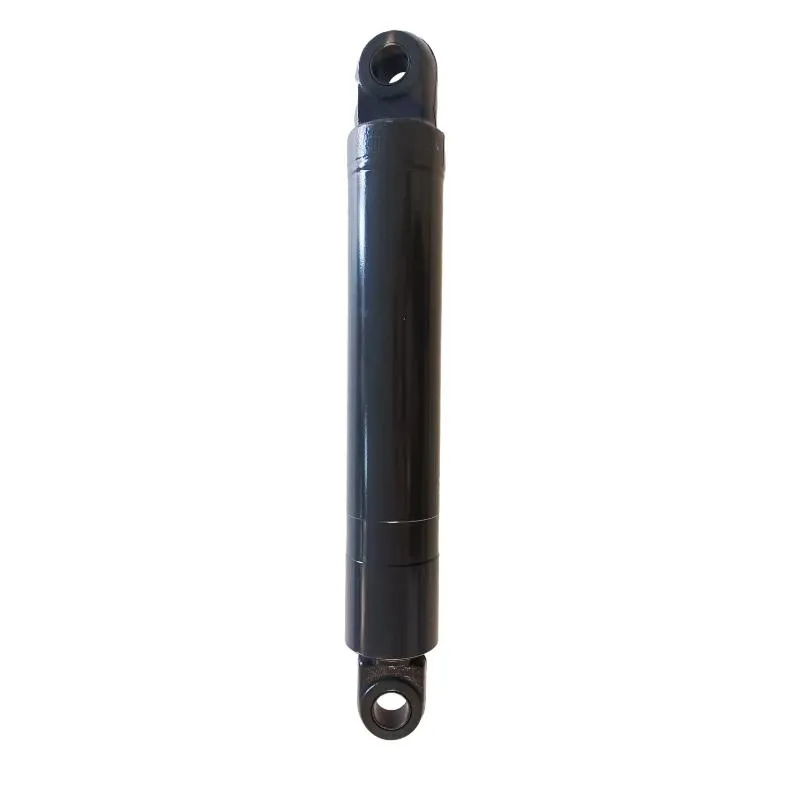Jul . 31, 2024 11:13 Back to list
Hydraulic Cylinder Manufacturers Specializing in Car Carrier Solutions for Enhanced Performance and Reliability
The Importance of Car Carrier Hydraulic Cylinder Manufacturers
In the automotive transportation industry, the importance of efficient and reliable equipment cannot be overstated. One of the key components that contribute to the safe and effective transport of vehicles is the hydraulic cylinder. Among the various manufacturers of these vital components, those specializing in car carrier hydraulic cylinders play a crucial role in enhancing the functionality of car transporters. This article explores the significance of car carrier hydraulic cylinder manufacturers and how they contribute to the transportation sector.
Understanding Hydraulic Cylinders
Hydraulic cylinders are mechanical devices that convert hydraulic energy into linear motion. They are widely used in various applications, including construction, manufacturing, and, of course, vehicle transport. In car carriers, hydraulic cylinders are essential for operating the platform that lifts and lowers vehicles during loading and unloading. This capability is vital for ensuring that cars can be safely driven on and off the carrier without damage.
The design of hydraulic cylinders involves several critical components, including the cylinder barrel, piston, seals, and fluid. Each of these elements must be meticulously crafted and assembled to ensure efficient performance. A well-manufactured hydraulic cylinder can significantly reduce the time and effort required for loading and unloading vehicles, thereby enhancing overall efficiency.
Quality and Reliability
The success of car carriers hinges on the reliability of their hydraulic systems. This is where the expertise of car carrier hydraulic cylinder manufacturers becomes indispensable. High-quality manufacturers adhere to stringent quality control measures throughout the production process. They often utilize advanced technologies and materials to enhance the durability and performance of their products.
Manufacturers may also offer custom solutions tailored to the specific needs of their clients, accommodating various sizes and types of car carriers. This adaptability is crucial as the demands of the automotive industry continue to evolve. For instance, with the rise of electric vehicles and changes in vehicle design, manufacturers may provide hydraulic cylinders that can handle different loads and configurations.
car carrier hydraulic cylinder manufacturer

Innovations in Hydraulic Technology
The field of hydraulic technology is not static; it is continually evolving. Car carrier hydraulic cylinder manufacturers often lead the way in innovation, integrating the latest advancements to improve their products. This includes the development of cylinders that are lighter in weight but maintain high strength, as well as those that incorporate enhanced sealing systems to prevent leaks.
Moreover, some manufacturers are exploring the use of smart technology, allowing for real-time monitoring of hydraulic systems. This can help operators to identify potential issues before they escalate, leading to improved safety and reduced downtime. By incorporating these technologies, manufacturers are not only enhancing the functionality of their hydraulic cylinders but are also contributing to the overall efficiency of the automotive logistics industry.
Supporting Sustainable Practices
As the world moves towards more sustainable practices, car carrier hydraulic cylinder manufacturers are also aligning their operations with eco-friendly principles. This includes utilizing recyclable materials in their products, reducing waste in the manufacturing process, and striving for energy-efficient production methods. By committing to sustainability, these manufacturers are playing a part in minimizing the environmental impact of the transportation industry.
Conclusion
In conclusion, car carrier hydraulic cylinder manufacturers are indispensable players in the automotive transportation sector. Their commitment to quality, innovation, and sustainability directly influences the efficiency and safety of vehicle transport operations. As the industry continues to evolve, the role of these manufacturers will undoubtedly become even more critical, driving advancements that enhance the logistics of moving vehicles across distances. The future of car transportation will rely heavily on the innovations and improvements brought forth by these specialized manufacturers.
-
Fork Lift Power Units - Hebei Shenghan | Efficiency, Reliability
NewsJul.13,2025
-
1.5-Ton Turbocharged Cylinder-Hebei Shenghan|Hydraulic Solution,Energy Efficiency
NewsJul.13,2025
-
Auto Hoist Power Units-Hebei Shenghan|Efficiency&Industrial Lifting
NewsJul.13,2025
-
Double Acting Power Units-Hebei Shenghan|Hydraulic Solutions,Industrial Efficiency
NewsJul.13,2025
-
1.5 Ton Lifting Cylinder 70/82-40-290-535 - High-Performance Hydraulic Solution | Hebei Shenghan
NewsJul.13,2025
-
Fork Lift Power Units - Hebei Shenghan | Efficiency&Reliability
NewsJul.13,2025
